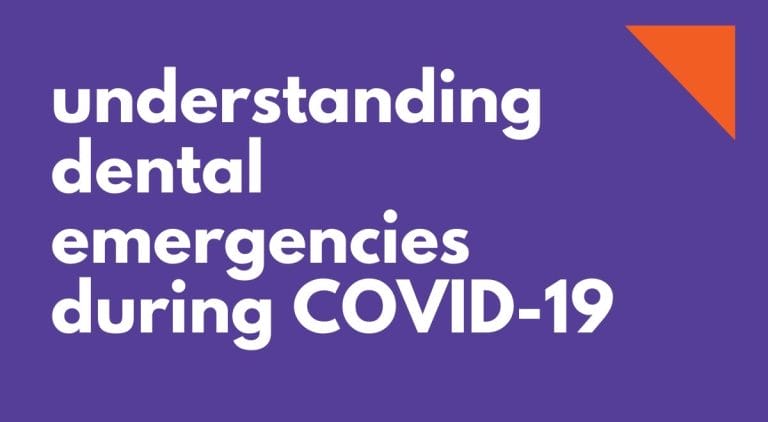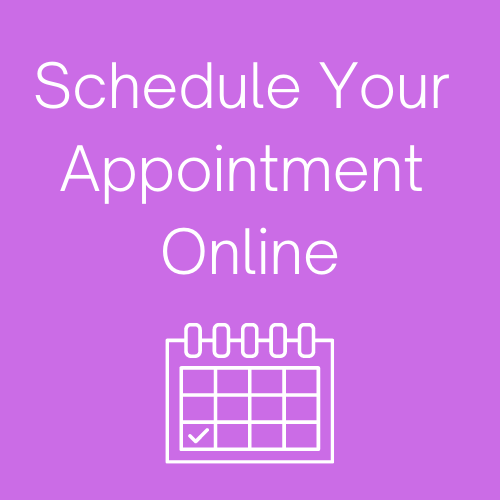The coronavirus outbreak is changing everything. A lot of aspects of life are being affected, mostly on the negative side. Social patterns have been affected the most, with the worry over the economic impact still looming overhead. Even though the medical aspect was not as severely affected, it seems that only a dental emergency is worthy of scheduling an appointment with your dentist.
Generally, our patients are used to visiting our dental clinic on scheduled appointments, but at the moment, routine care has to be put on hold. According to the American Dental Association and the CDC, oral offices should hold on non-urgent surgeries and appointments that don’t require immediate attention. If the covid-19 caught you off-guard and you had not yet gone in for a routine check-up, it seems that you will have to wait for a few weeks, or maybe more. This move is an effort to curb the spread of the coronavirus.
The primary reason you are not allowed to visit your dentist regularly is based on covid-19. How so, you ask? Coronavirus, the virus responsible for spreading covid-19 is spread through respiratory droplets. Whenever you sneeze or cough, these droplets fly through the air, and should someone breathe them in, the individual can get sick.
Furthermore, the disease causing virus is also present in the saliva and mucus in your throat and mouth. On a typical day, your oral care provider and their tools will come into contact with these fluids. There is a high chance of these tools spraying the droplets around.
Even though dental offices are medical spaces, not all of them are designed for high levels of protection. Most Long Island oral clinics lack:
i. Enough N95 face masks
ii. Isolation rooms
iii. Individual rooms for clients
Furthermore, by skipping routine treatments, the dentists can focus on emergency dental care. This reduces the workload for the health workers at the hospitals since they only have to deal with covid-19 patients and acute treatments. More so, they will be reduced the use of personal protective equipment. As the epidemic continues to rage on, health care workers are running short on PPE’s.
Elective procedures, cosmetic dental procedures, or non-urgent treatments are dental procedures that will not affect your health immediately if not fixed as scheduled. Therefore, you can reschedule them as far off as possible. Examples of elective oral procedures provided in New York include:
• fixing cosmetic issues
• X-rays
• Check-ups for braces
• teeth whitening
• teeth examinations and cleaning
• minor treatment like tooth removal and fixing cavities
Visiting oral clinics is not entirely restricted, so you can still see your 3V Dental dentist for severe problems. According to the ADA, emergency treatment is a life-threatening situation that requires immediate treatment. The dentists get to decide what defines emergencies. Most urgent cases reported in New York involve:
• if parts around and in the mouth are swollen, e.g. neck, gums, face
• you need relief from severe pain
• signs of infection
• broken teeth that are painful and have caused tissue damage
• the tissue in need of biopsy
• cancer-related dentist work
• painful braces
• dentures that do not function right
• a broken or lost temporary crown
• post-surgery care you are unable to do alone
Make sure to call or contact our Port Washington office first to confirm what is covered. Visit a hospital or an emergency care centre if the dentists can’t see you. Nonetheless, there is no need to go into the ER as the first resort.it is critical to differentiate between mild oral discomfort that can wait and emergencies that are a threat to your health.
According to recent statistics, about 23% of the population has experienced oral or dental pain the past half-year. This is an indication of how common oral emergencies crop up. Nonetheless, not every dental discomfort is an emergency. Oral emergencies involve the need for saving a tooth, pain relief, stop bleeding, and treat an infection.
Since the coronavirus outbreak, you are at risk of contracting covid-19 every time you leave your house. Health care providers are expected to adhere to health guidelines and regulations, and your dentist’s office is no exception. Most oral clinics in Long Island are taking extra steps that might help to curb the spread of covid-19. For instance:
• individuals working at the dental office should ensure always to wear protective gear
• ensure to disinfect tools and contact surfaces constantly
• clean and cover tools between uses, and safely dispose and replace necessary tools and equipment
• everyone should cover their mouths with rubber dental dams
• furthermore, the clinic should space appointments and schedule them appropriately to avoid overcrowding
• they should ensure to take the patient’s temperature and ask about recent travel schedules
If an emergency visit to your oral service provider can’t be avoided:
• ensure to use personal protective equipment
• stay six feet apart from other patients
• If you require follow-up appointments, discuss with your oral caregiver to create a custom treatment plan.
During an epidemic, it is better to keep safe in every way possible. Even though you cannot have routine dental check-ups, it does not mean that you cannot practice common oral hygiene to prevent the need for immediate medical attention. Standard practices to carry out without the dentist’s help include
• Paying attention to your oral health- check for signs of oral disease, or infection
• Be proactive- brush your teeth, floss and eat the right food
• During sports activities, ensure you wear a mouthguard. This way, your teeth will not be broken, knocked out, or chipped.
• do not chew on hard food that may fracture your teeth
• Before travelling for indeterminate periods or extended vacations, ensure you get a routine check-up. Your oral care provider will ensure that you do not have decay, loose teeth or crowns, and any infections.
• if you are experiencing any discomfort, they will check for the cause and give you proper treatment
Nonetheless, it is almost impossible to avoid an oral-related emergency, so it is better to be prepared. A small dental kit would come in handy at such a moment. It should include:
• Acetaminophen (ibuprofen and aspirin should not be used since they act as blood thinners. Thus they will cause excessive bleeding)
• Handkerchief.
• gauze
• the name and phone number of your oral care provider
If you believe you are experiencing a dental emergency, or have questions as to what might be a dental emergency, contact our office and we would be happy to assist.



